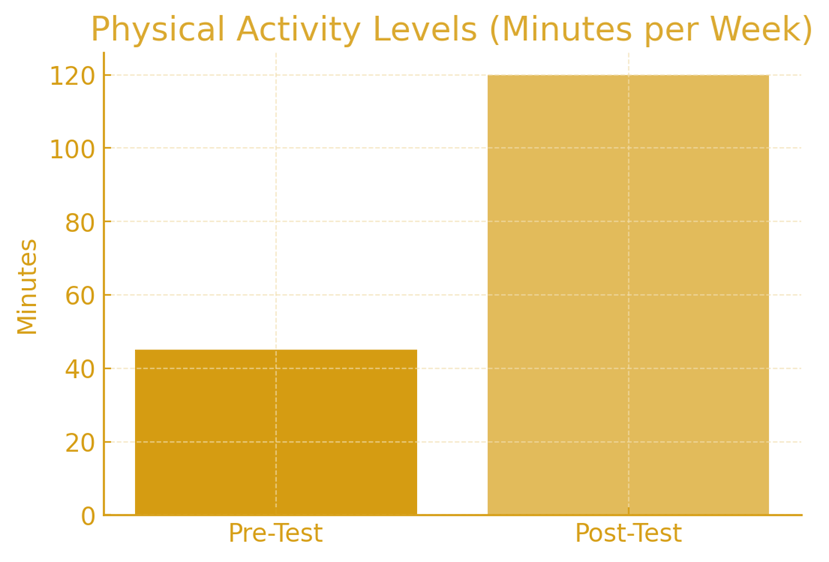A Gamified Approach to Reduce Obesity Through Physical Activity
Keywords:
Global Health, Quasi-Experimental Study, Gamified Mobile Apps, Affordable Solutions, STRAVA App, ObesityAbstract
Obesity is a major global health problem, directly affecting both illness and death rates. Sedentary lifestyles have led to high obesity rates, especially in developing countries like Pakistan. This study explores how gamified mobile apps can encourage physical activity to help fight obesity. The STRAVA app was used in a gamified intervention to track physical activity, motivation, and weight loss among participants. A quasi-experimental study design was used to assess the effectiveness of gamification in promoting behavioral change. The results show that gamification can significantly boost motivation, participation, and long-term commitment to physical activity, leading to weight loss and better health. The study highlights the potential of gamified mobile apps as affordable and scalable solutions for reducing obesity.
References
World Health Organization, “Obesity and overweight,” WHO(World Heal. Organ., 2021, [Online]. Available: https://www.who.int/news-room/fact-sheets/detail/obesity-and-overweight
Pakistan Health Report, “Obesity trends in urban populations,” Pakistan Heal. Rep., 2022.
M. Yildirim, “Gamification and cognitive development: Effects on motivation,” J. Educ. Psychol, vol. 29, no. 4, pp. 312–328, 2021.
S. Ede, “Motivation and engagement in gamified learning environments,” Educ. Psychol. Rev, vol. 24, no. 2, pp. 92–108, 2019.
T. Khaddage et al, “Gamification in mobile health interventions,” Int. J. E-Learning Stud, vol. 8, no. 1, pp. 55–73, 2014.
López et al, “The impact of gamification on user engagement,” J. Interact. Learn., vol. 12, no. 1, pp. 58–76, 2020.
Caponetto et al, “Gamification strategies for effective learning,” Educ. Rev, vol. 27, no. 1, pp. 78–92, 2019.
T. Turtinen et al, “Gamification and online learning: Addressing challenges in remote education,” J. Digit. Learn., vol. 15, no. 3, pp. 145–162, 2022.
M. Lee et al, “Gamification in fitness tracking applications,” J. Heal. Tech, vol. 18, no. 2, pp. 102–117, 2021.
L. Rodrigues et al, “Using gamification to promote physical activity: A systematic review,” Int. J. Heal. Promot., vol. 25, no. 3, pp. 188–205, 2023.
B. O’Donovan et al, “Evaluating the effectiveness of gamified mobile apps in promoting exercise: A meta-analysis,” J. Heal. Informatics, vol. 21, no. 4, pp. 102–130, 2022.
Nieto-Escamez et al, “Gamification for health behavior change: A systematic review of empirical studies,” J. Med. Internet Res, vol. 24, no. 6, pp. 1–18, 2021.
R. Hamari and J. Koivisto, “Why do people use gamification? A study on the relationship between game features and motivation,” Comput. Hum. Behav, vol. 29, no. 3, pp. 123–132, 2020.
E. Deci and R. M. Ryan, “Self-determination theory in health and wellness: New perspectives,” J. Psychol. Heal., vol. 35, no. 5, pp. 567–582, 2022.
S. A. Khaskheli and M. S. Vighio, “Gamification: A Case Study for Evaluating the Performance of Employees,” Sindh Univ. Res. J. (Science Ser., vol. 51, no. 1, pp. 87–90, 2019, doi: 10.26692/sujo/2019.01.16.

Downloads
Published
How to Cite
Issue
Section
License
Copyright (c) 2025 50sea

This work is licensed under a Creative Commons Attribution 4.0 International License.




















